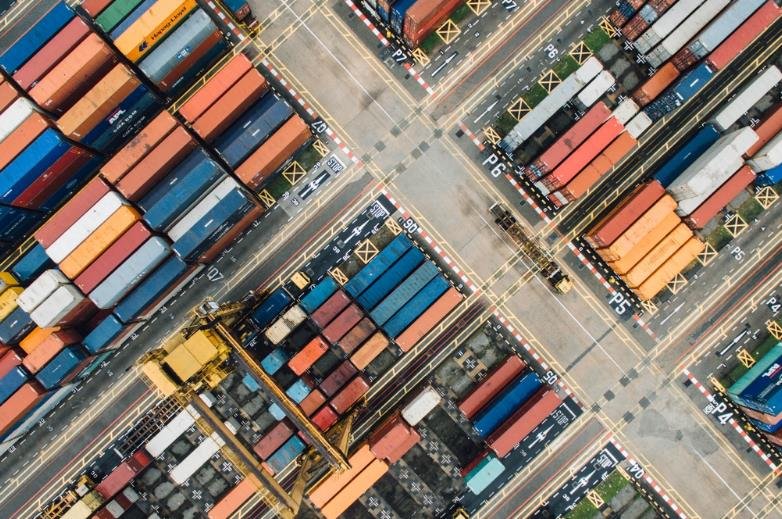Egypt’s President Abdel Fattah al-Sisi revealed on Monday that the revenue from the Suez Canal, one of the country’s main sources of foreign currency, has dropped by 40 to 50 percent this year, due to the disruption of navigation traffic in the Red Sea caused by the attacks of Yemen’s Houthi rebels. The decline in revenue is a major blow to Egypt’s economy, which is already suffering from the effects of the COVID-19 pandemic, the rising oil and wheat prices, and the foreign currency shortage.
The Suez Canal is a vital waterway that connects the Mediterranean Sea and the Red Sea, and allows the passage of about 10 percent of global trade. The canal is also a strategic asset for Egypt, as it generates about $9.4 billion in annual revenue, according to the Suez Canal Authority. The revenue helps Egypt pay its foreign debt, finance its imports, and support its public spending.

The decrease in Suez Canal revenue is mainly due to the attacks by the Houthi rebels in Yemen on international ships in the Red Sea, which have intensified since the start of the Israel-Hamas war in Gaza in 2023. The Iran-backed group has claimed responsibility for several attacks on ships in the strategic waterway, which connects to the Suez Canal, saying that they are targeting vessels linked to Israel, Saudi Arabia, and the United States. However, many of the ships attacked have no ties to these countries, and are carrying civilian goods and passengers.
The attacks have disrupted the navigation traffic in the Red Sea, and forced many international shipping companies to avoid the Suez Canal by sailing around the African continent, which adds time and cost to their journeys. Some countries, such as the United States and the United Kingdom, have also launched airstrikes on the Houthi positions in Yemen, in an attempt to deter the attacks and protect the shipping lanes. However, these efforts have not been successful so far, and the attacks continue to pose a threat to the regional and global security and stability.
A Call for International Cooperation and Support
Sisi made his remarks during a conference with oil companies in Cairo, where he discussed the challenges and opportunities facing the energy sector in Egypt and the region. He said that Egypt had to continue to pay its partners and companies, despite the decline in Suez Canal revenue, and that it needed the support and cooperation of the international community to overcome the crisis.
Sisi also stressed the importance of the energy sector for Egypt’s development and prosperity, and highlighted the achievements and reforms that Egypt had made in this field, such as increasing its oil and gas production, diversifying its energy sources, and expanding its renewable energy projects. He said that Egypt was keen to attract more investments and partnerships in the energy sector, and to share its expertise and experience with other countries in the region.
Sisi also expressed his appreciation and gratitude to the oil companies that participated in the conference, and praised their role and contribution to the development of the energy sector in Egypt. He said that Egypt was committed to providing a conducive and stable environment for the oil companies, and to ensuring their rights and interests.
A Hope for a Better and Safer Future
The decline in Suez Canal revenue is not the only economic challenge facing Egypt. The country is also struggling with high inflation, which reached 35.2 percent in December 2023, low tourism, which was affected by the COVID-19 pandemic, and rising oil and wheat prices, which were triggered by the Russian invasion of Ukraine in 2022. These factors have also contributed to the foreign currency shortage, which has forced some Egyptian banks to impose restrictions on foreign currency transactions.
To cope with these challenges, Egypt has been pursuing a reform and growth agenda, under its Vision 2025, which aims to improve its competitiveness and attractiveness as a trade and investment destination. The agenda includes measures such as fiscal consolidation, monetary policy adjustment, subsidy reform, social protection, and structural transformation. The agenda has also received the support and endorsement of the International Monetary Fund (IMF), which approved a $5.2 billion loan for Egypt in 2020, and a $1.6 billion loan in 2023.
Egypt hopes that its reform and growth agenda, along with the international cooperation and support, will help it overcome the economic crisis, and achieve its development and prosperity goals. Egypt also hopes that the regional and global situation will improve, and that the Houthi attacks in the Red Sea will stop, so that the Suez Canal can resume its normal operation, and regain its revenue and status as a lifeline for the world trade and economy.
